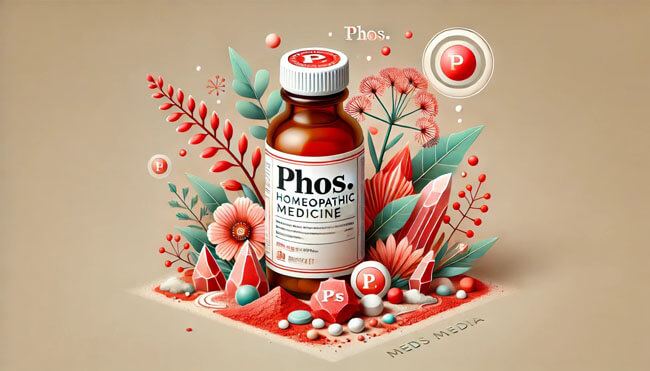
PHOSPHORUS ( PHOS ) Homeopathic Uses & Treatment Insights
Phosphorus is a powerful and versatile remedy in homeopathy, known for its broad impact on the body’s vital systems. It primarily targets the mucous membranes, nervous system, bones, and blood, working to address issues caused by inflammation, degeneration, and paralysis. Phosphorus is particularly beneficial for individuals who exhibit nervous exhaustion, emaciation, and heightened sensitivity to external stimuli like light, sound, and electrical changes.
In homeopathic practice, Phosphorus is considered an essential remedy for cases involving destructive metabolism, degenerative changes in the body, and a general weakening of the vital functions. It is especially indicated for tall, thin individuals with delicate, transparent skin, who suffer from conditions such as fatty degeneration, polycythemia, and muscular pseudo-hypertrophy.
Symptoms Addressed by Phosphorus
Mucous Membrane and Respiratory Issues
Mild Symptoms: Irritation and inflammation of mucous membranes, minor respiratory discomfort.
Severe Symptoms: Chronic bronchitis, inflammation of the respiratory tract, pneumonia, dry and hacking cough, with sharp, shooting pains in the chest.
Materia Medica Insights: Phosphorus is highly effective for individuals prone to respiratory infections, particularly when symptoms come on suddenly and are accompanied by weakness and profuse sweating. It addresses deep inflammation in the lungs and bronchial tubes, making it a key remedy for conditions like pneumonia, bronchitis, and cough.
Nervous System and Paralysis
Mild Symptoms: Nervous exhaustion, heightened sensitivity to stimuli like light, sound, and odors, restlessness, fidgeting, and easy fatigue.
Severe Symptoms: Paralytic weakness, muscular degeneration (pseudo-hypertrophy), neuritis, and ataxia.
Materia Medica Insights: Phosphorus is particularly effective in treating neurological conditions. It calms nervous debility and hyperactivity, while also addressing paralytic symptoms. Patients experiencing weakness in the limbs, numbness, or degenerative changes in muscles will find relief with this remedy.
Blood and Circulatory System
Mild Symptoms: Small, frequent hemorrhages, easy bruising, and anemia.
Severe Symptoms: Blood extravasations, fatty degeneration of blood vessels, cirrhosis, polycythemia, and jaundice.
Materia Medica Insights: Phosphorus supports the circulatory system by helping to restore healthy blood flow and vessel integrity. It is frequently prescribed for cases of polycythemia and cirrhosis, as well as conditions involving blood vessel degeneration, which may lead to hemorrhages and jaundice.
Bone and Skeletal Health
Mild Symptoms: Bone sensitivity, mild fragility, and discomfort in the limbs.
Severe Symptoms: Osteomyelitis, bone caries (especially in the lower jaw and tibia), and increased bone fragility.
Materia Medica Insights: Phosphorus is instrumental in maintaining bone health, particularly in patients experiencing chronic bone issues such as osteomyelitis or caries. It strengthens the skeletal system and alleviates bone degeneration and fragility.
Liver and Digestive Health
Mild Symptoms: Indigestion, bloating, and mild discomfort in the abdomen.
Severe Symptoms: Yellow atrophy of the liver, cirrhosis, and sub-acute hepatitis.
Materia Medica Insights: Phosphorus is a potent remedy for liver degeneration and hepatitis. It is indicated when there is evidence of fatty liver, cirrhosis, or jaundice resulting from liver dysfunction. This remedy aids in restoring liver function and promoting healthy metabolism.
Psychological and Emotional Effects
Mental and Emotional Health
Mild Symptoms: Restlessness, anxiety, mild memory loss, and emotional sensitivity.
Severe Symptoms: Depression, intense fear (especially of death when alone), paranoia, hallucinations, and clairvoyant states.
Materia Medica Insights: Phosphorus is highly recommended for individuals with mental exhaustion, anxiety, or emotional hypersensitivity. It is particularly beneficial for those who experience sudden prostration, restlessness, and fearfulness, providing a calming influence on the mind and promoting emotional balance.
Head, Eyes, and Sensory Organs
Head and Vertigo
Mild Symptoms: Mild headaches, scalp sensitivity, and itching.
Severe Symptoms: Vertigo upon standing, brain fatigue, neuralgia, and chronic congestion.
Materia Medica Insights: Phosphorus helps alleviate headaches and vertigo, especially in elderly patients. It also addresses neuralgia and chronic head congestion, which often presents with a sensation of heat radiating from the spine or tightness in the scalp.
Eyes and Vision
Mild Symptoms: Tired eyes, sensitivity to light, and floating black spots in vision.
Severe Symptoms: Cataracts, optic nerve atrophy, glaucoma, and retinal degeneration.
Materia Medica Insights: Phosphorus is effective in treating visual disturbances such as cataracts, glaucoma, and retinal degeneration. Patients may also experience temporary relief from symptoms like seeing green halos or feeling like a veil is covering their eyes.
Ears and Hearing
Mild Symptoms: Temporary hearing difficulties, sensitivity to sound, especially human voices.
Severe Symptoms: Persistent hearing loss, re-echoing sounds, and hearing impairment following illnesses like typhoid.
Materia Medica Insights: Phosphorus improves auditory function, particularly for those suffering from hearing loss or echoing sounds. It helps restore clarity to hearing, especially in cases related to post-infectious hearing issues.
Facial Symptoms
Mild Symptoms: Pale, sickly complexion with slight facial pain.
Severe Symptoms: Tearing pain in facial bones, blue rings under the eyes, and circumscribed redness in one or both cheeks. Swelling and necrosis of the lower jaw.
Materia Medica Insights: Phosphorus is an excellent remedy for individuals with a pale and sickly complexion or those experiencing facial pain. It is particularly useful in cases of necrosis of the lower jaw or significant facial swelling. This remedy helps alleviate pain in the facial bones and improves circulation in the affected areas, reducing inflammation and redness in the face.
Mouth and Dental Health
Mild Symptoms: Slight gum sensitivity and dry mouth.
Severe Symptoms: Swollen and ulcerated gums that bleed easily, dry and smooth tongue, and persistent bleeding after tooth extraction. Nursing sore mouth and stricture of the esophagus.
Materia Medica Insights: Phosphorus is highly effective in addressing mouth and dental conditions, such as bleeding gums, toothache, and ulcers. It is often prescribed for individuals with a sore mouth, particularly when nursing, and those who experience persistent bleeding after dental procedures. The remedy also alleviates dryness in the throat and esophagus while helping with symptoms of esophageal stricture.
Stomach and Digestive Issues
Mild Symptoms: Sour taste in the mouth and slight indigestion after meals.
Severe Symptoms: Intense hunger soon after eating, sour eructations, vomiting of ingested food, and post-operative vomiting. Burning pain extending from the stomach to the throat and bowels.
Materia Medica Insights: Phosphorus is highly beneficial for stomach and digestive disorders, particularly those involving vomiting, indigestion, and burning pain. It helps soothe the esophagus and stomach, especially when inflammation is present. This remedy is often indicated for individuals who vomit shortly after eating, or when food feels stuck in the throat. It can also relieve post-operative vomiting and conditions where the cardiac opening of the stomach feels contracted.
Abdominal Health
Mild Symptoms: Mild abdominal discomfort and slight cold sensation.
Severe Symptoms: Sharp, cutting abdominal pains, weakness, and emptiness in the abdominal cavity. Fatty degeneration of the liver, jaundice, and pancreatic disease.
Materia Medica Insights: Phosphorus is a vital remedy for addressing abdominal pain and conditions related to the liver and pancreas. It is useful in cases of liver congestion, acute hepatitis, and fatty degeneration, helping to improve liver function and digestive processes. It is also effective in treating sharp abdominal pains and a sensation of coldness in the abdomen.
Stool and Bowel Health
Mild Symptoms: Mild digestive irregularities, with slightly difficult bowel movements.
Severe Symptoms: Long, narrow, hard stools, difficult to expel. Painless, copious diarrhea, green mucus with grains like sago, involuntary stools, and bleeding from the rectum.
Materia Medica Insights: Phosphorus is effective for individuals experiencing constipation or diarrhea. It is particularly helpful when stools are long, narrow, and hard, resembling a dog’s, or when diarrhea is accompanied by weakness and exhaustion. The remedy also addresses rectal bleeding and hemorrhoids, making it valuable for people who suffer from frequent bowel issues.
Urinary Health
Mild Symptoms: Slight changes in urine color and clarity.
Severe Symptoms: Hematuria (blood in urine), especially in acute Bright’s disease, with turbid, brown urine and red sediment.
Materia Medica Insights: Phosphorus is beneficial in addressing urinary issues, particularly hematuria associated with Bright’s disease. It helps in cases where urine becomes turbid, brown, or contains red sediment, promoting urinary health and improving kidney function.
Male Reproductive Health
Mild Symptoms: Slight decrease in energy and general weakness.
Severe Symptoms: Lack of sexual power, irresistible desire, and involuntary emissions with lascivious dreams.
Materia Medica Insights: Phosphorus is often used to address male reproductive health issues, including lack of sexual energy, involuntary emissions, and excessive desire. It helps restore vitality and balance in cases of nervous exhaustion or sexual debility, making it a go-to remedy for men experiencing these symptoms.
Female Reproductive Health
Mild Symptoms: Slight menstrual irregularities, such as early or prolonged periods, and mood swings before menstruation.
Severe Symptoms: Metritis (inflammation of the uterus), chlorosis, profuse leucorrhea, uterine polyps, nymphomania, and painful suppuration of mammary glands after abscesses.
Materia Medica Insights: Phosphorus is highly effective for various female reproductive issues. It is particularly useful in cases of metritis, where the uterus is inflamed, and chlorosis, a form of anemia commonly found in young women. The remedy addresses irregular menstruation, including early, prolonged, or scanty periods, and can help ease pre-menstrual emotional symptoms, such as weeping and irritability. For women experiencing painful abscesses in the breasts or uterine polyps, Phosphorus provides relief by promoting healing and reducing inflammation. Additionally, it is valuable for conditions like nymphomania and vicarious menstruation.
Respiratory System and Cough
Mild Symptoms: Hoarseness in the evening, tickling in the throat, and a mild cough.
Severe Symptoms: Racking, dry coughs, sharp chest pains, burning in the chest, pneumonia with rusty or blood-colored sputum, and tuberculosis in rapidly-growing young people.
Materia Medica Insights: Phosphorus is an important remedy for respiratory complaints, especially when there is a deep, racking cough that worsens in the evening or when speaking. It is particularly indicated in cases of pneumonia, where there is oppression in the chest and a sensation of tightness or weight. Burning chest pains and sharp stitches are common symptoms that Phosphorus addresses, alongside nervous coughs triggered by cold air, strong odors, or the presence of strangers. The remedy is beneficial in managing tuberculosis in young, tall individuals, but should be used cautiously in lower potencies due to its ability to hasten destructive processes.
Heart and Circulatory Health
Mild Symptoms: Slight palpitations and anxiety when lying on the left side.
Severe Symptoms: Violent palpitations, dilated heart (especially on the right side), warmth in the heart, and rapid, small, soft pulse.
Materia Medica Insights: Phosphorus is particularly useful in treating heart conditions where there is a sensation of warmth or heaviness in the chest. It helps reduce palpitations and feelings of anxiety, particularly when these symptoms are exacerbated by lying on the left side. It is often prescribed for cases where the heart is dilated, particularly the right side, and where the pulse is rapid, small, and weak. This remedy is beneficial in improving circulatory function and alleviating heart-related discomfort.
Back and Spine Health
Mild Symptoms: Mild burning in the back or a sensation of heat between the shoulder blades.
Severe Symptoms: Intense pain as if the back were broken, weak spine, burning sensation in the back, and post-diphtheritic paralysis.
Materia Medica Insights: Phosphorus is a key remedy for back and spine issues, especially when there is a sensation of burning or painful heat between the shoulder blades. It is effective in cases of spinal weakness or when the back feels as though it is broken. The remedy is also useful in managing post-diphtheritic paralysis, where patients experience numbness and tingling (formication) in the hands and feet. This supports spinal health and helps restore nerve function after severe illnesses.
Extremities and Paralysis
Mild Symptoms: Weakness and trembling in the limbs, numbness in the arms and hands.
Severe Symptoms: Ascending paralysis (starting from fingers and toes), inflamed tibia that becomes necrosed, joints that suddenly give way, and post-diphtheritic paralysis.
Materia Medica Insights: Phosphorus is highly effective in treating paralytic conditions affecting the extremities. It is particularly indicated for ascending paralysis, where weakness begins in the fingers and toes and moves upward. The remedy also helps in cases of joint pain with sudden loss of strength and trembling, making it difficult to hold objects or perform physical tasks. Additionally, Phosphorus addresses inflammation and necrosis of the tibia, supporting recovery from bone and joint degeneration.
Sleep and Dream Disturbances
Mild Symptoms: Slight difficulty falling asleep or occasional vivid dreams.
Severe Symptoms: Persistent insomnia in elderly people, coma vigil, vivid dreams of fire or hemorrhage, and frequent waking with weakness.
Materia Medica Insights: Phosphorus is beneficial for individuals who experience sleep disturbances, especially insomnia in older individuals and those prone to vivid, disturbing dreams. It is particularly helpful for people who suffer from coma vigil (a state of wakefulness with an inability to sleep) or lascivious dreams. Phosphorus promotes restful sleep and alleviates sleeplessness associated with nervous exhaustion or anxiety.
Fever and Sweating
Mild Symptoms: Slight chills in the evening or a general feeling of coldness.
Severe Symptoms: Hectic fever with small, quick pulse, night sweats, and profuse perspiration. Adynamic fever with hunger and lack of thirst.
Materia Medica Insights: Phosphorus is indicated for fevers that are accompanied by profuse sweating, night sweats, and weakness. It is particularly effective in treating hectic fevers, where the pulse is small and rapid, and the patient experiences viscid night sweats. This remedy helps restore balance during fevers by supporting metabolism and immune function.
Skin and Wound Healing
Mild Symptoms: Small wounds that bleed easily or take time to heal.
Severe Symptoms: Petechiae, ecchymosis, scurvy, purpura hemorrhagica, and fungous hematodes.
Materia Medica Insights: Phosphorus is a key remedy for skin issues and wound healing, especially when wounds bleed excessively or re-open after healing. It is particularly useful in treating petechiae, purpura hemorrhagica, and ecchymosis (bruising). Phosphorus promotes healing in ulcerated skin and helps restore the integrity of blood vessels, reducing the likelihood of bleeding disorders.
Modalities: Influencing Factors
Worse From:
- Touch, physical or mental exertion
- Twilight or change in weather
- Warm food or drink
- Lying on the left or painful side
- Thunderstorms, climbing stairs, or during evening time
Better From:
- Darkness, lying on the right side
- Cold food, open air
- Washing with cold water
- Rest and sleep
Additional Benefits of Phosphorus
Phosphorus remains one of the most versatile remedies in homeopathy, offering benefits across a wide spectrum of health concerns:
- Facial pain and jaw necrosis: Effective in reducing facial bone pain and addressing swelling or necrosis of the lower jaw.
- Oral health: Alleviates bleeding gums, sore mouths, and persistent bleeding after tooth extraction.
- Digestive relief: Calms vomiting, indigestion, and burning pain in the stomach and esophagus.
- Abdominal support: Eases sharp pains, liver congestion, and symptoms related to jaundice and pancreatic disease.
- Stool and urinary regulation: Treats constipation, diarrhea, and urinary issues like hematuria.
- Reproductive health: Restores balance in cases of sexual debility and nervous exhaustion.
- Nervous system support: Calms nervousness, restlessness, and hypersensitivity.
- Respiratory health: Relieves inflammation, cough, and chest pain.
- Circulatory and liver health: Reduces the risk of fatty degeneration and supports blood and liver function.
- Bone and skeletal strength: Addresses bone degeneration and fragility.
- Mental and emotional balance: Helps alleviate depression, anxiety, and fearfulness.
Relationship with Other Remedies
1. Complementary Remedies
Complementary remedies are those that enhance or follow the action of Phosphorus, offering a broader spectrum of healing for the patient.
- Arsenicum Album (Ars.): Phosphorus and Arsenicum Album work well together to address conditions involving anxiety, weakness, and respiratory issues. Arsenicum complements Phosphorus in treating chronic coughs, digestive issues, and general nervous exhaustion.
- Allium Cepa (Cepa): Useful in cases of respiratory infections, particularly when symptoms include watery eyes and nasal discharge. It complements Phosphorus for addressing mucous membrane irritation in the respiratory tract.
- Lycopodium (Lyc.): Lycopodium is complementary to Phosphorus in cases of liver disorders, digestive issues, and mental fatigue. It is particularly effective in treating abdominal complaints and weakness, making it a good follow-up to Phosphorus.
- Silica: Silica complements Phosphorus, especially for conditions involving bone health, skin conditions, and nervous exhaustion. It can be used after Phosphorus in cases where there is suppuration or weakness of connective tissues.
- Sanguisuya 30 (Leech): This remedy is beneficial in cases of persistent hemorrhages and is useful when the patient has suffered from excessive bleeding due to the use of leeches. It complements Phosphorus in managing bleeding disorders.
- Phosphorus Pentachloride: This remedy is particularly useful for treating soreness of the mucous membranes in the eyes, nose, throat, and chest. It can complement Phosphorus in cases where there is extreme mucous membrane irritation.
2. Incompatible Remedies
Certain remedies are incompatible with Phosphorus, meaning they should not be used together as they may interfere with each other’s actions.
- Causticum (Caust.): Causticum is considered incompatible with Phosphorus and should not be used in conjunction with it. These two remedies can cancel out each other’s effects, leading to a reduction in therapeutic benefit.
3. Comparative Remedies
These remedies have similar actions to Phosphorus or follow it well in treatment, addressing similar symptoms and conditions.
- Tuberculinum: This remedy follows Phosphorus well, particularly in cases of tuberculosis and chronic respiratory conditions. It complements the action of Phosphorus in treating long-standing respiratory issues and weakness.
- Phosphorus Hydrogenatus: This remedy is used for conditions like crumbling teeth, hyperesthesia, and locomotor ataxia, where there is extreme sensitivity and nervous degeneration. It compares well to Phosphorus, especially in cases involving nerve and muscle disorders.
- Amphisbæna: This remedy is used for swelling and pain in the right jaw, making it a good comparative remedy to Phosphorus, especially for patients experiencing facial bone issues like jaw necrosis.
- Thymol: Useful in cases of sexual neurasthenia, irritable stomach, and lumbar region pain. It shares similarities with Phosphorus in treating conditions that worsen with mental or physical exertion.
- Calcarea Carbonica (Calc.), Chininum Sulphuricum (Chin.), Antimonium Tart (Antim.), Sepia (Sep.), and Sulphur (Sulph.): These remedies are often compared to Phosphorus for their shared ability to address nervous weakness, respiratory issues, and digestive problems. They may be used in alternation with or following Phosphorus to treat specific symptoms.
- Pneumococcinum 200 and Pneumotoxin: Taken from the Diplococcus Lanceolatus of Fraenkel, these remedies are useful in treating pneumonia and paralytic phenomena. They complement Phosphorus in cases of pneumonia, particularly when there is pleuritic pain and involvement of the ilio-cecal region.
4. Antidotes to Phosphorus Poisoning
In cases of Phosphorus poisoning, certain remedies act as antidotes to neutralize its toxic effects.
- Turpentine: This is the primary antidote for Phosphorus poisoning. It binds with Phosphorus to form an insoluble mass, helping to prevent further absorption and toxicity.
- Potassium Permanganate (Potass Permang.): Another important antidote for Phosphorus poisoning, Potassium Permanganate is used to oxidize Phosphorus, making it less harmful.
- Nux Vomica (Nux): This remedy acts as an antidote to the nausea and vomiting caused by chloroform and ether, conditions that Phosphorus also addresses. Nux and Phosphorus are sometimes used in tandem to counteract the negative side effects of anesthesia.
Phosphorus also acts as an antidote to various substances, including the nausea and vomiting caused by chloroform and ether.
Dosage Guidelines
Potency: The recommended potency for Phosphorus typically ranges from the third to thirtieth potency. Careful consideration is needed in chronic cases, especially in tubercular conditions, where lower potencies should be avoided to prevent aggravation or hastening the disease’s destructive processes.
- Third to thirtieth potency is commonly used depending on the patient’s condition, severity of symptoms, and overall vitality.
- Higher potencies may be necessary in deep-seated conditions, but continuous low doses should be avoided, especially in cases involving tuberculosis or degenerative disorders.
Select Your Homeopathic Medicine Dose and Potency
Potency Selection Guide
Relationship of Remedies
Phosphorus Personality in Homeopathy
Why our homeopathy guides are different
We break down classical homeopathic ideas, remedy personalities, and prescribing tips into clear explanations so students and patients can follow along without jargon.
This homeopathy site is for study and education only. For any health concern, always work with a qualified doctor or registered homeopathic practitioner.
Similar Posts You may also like

NITRO MURIATICUM ACIDUM HOMEOPATHIC MATERIA MEDICA | Uses, Symptoms & Benefits Guide
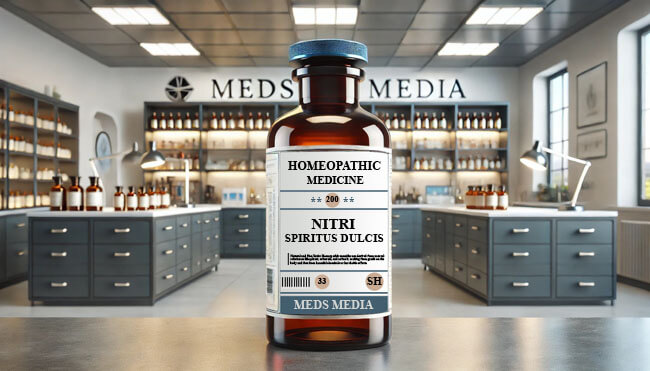
NITRI SPIRITUS DULCIS HOMEOPATHIC MATERIA MEDICA | Uses, Symptoms & Benefits Guide
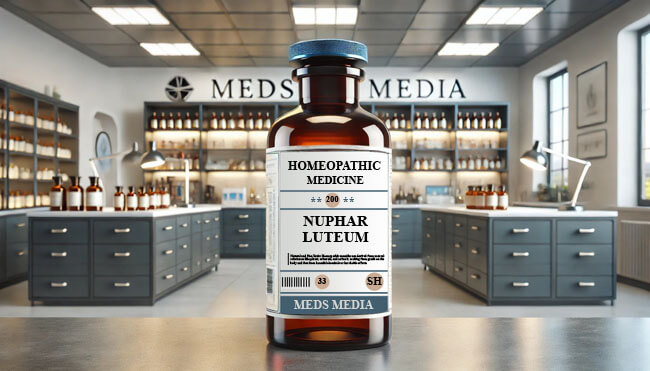
NUPHAR LUTEUM HOMEOPATHIC MATERIA MEDICA | Uses, Symptoms & Benefits Guide
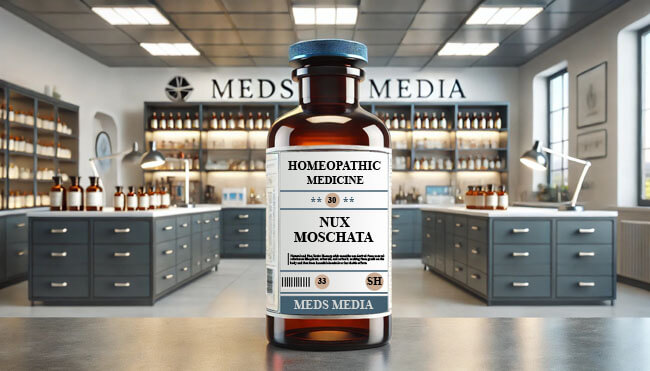
NUX MOSCHATA HOMEOPATHIC MATERIA MEDICA | Uses, Symptoms & Benefits Guide
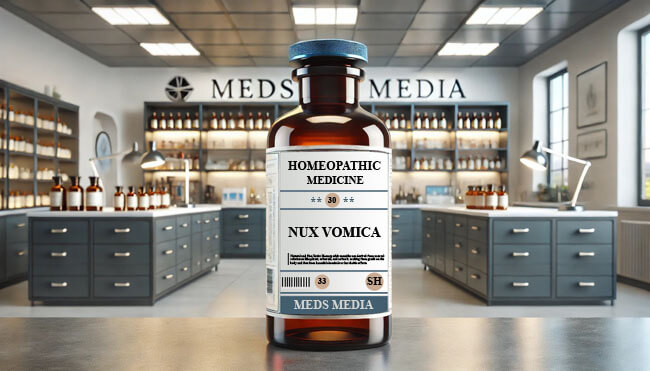
NUX VOMICA HOMEOPATHIC MATERIA MEDICA | Uses, Symptoms & Benefits Guide

NYCTANTHES ARBOR TRISTIS HOMEOPATHIC MATERIA MEDICA | Uses, Symptoms & Benefits Guide
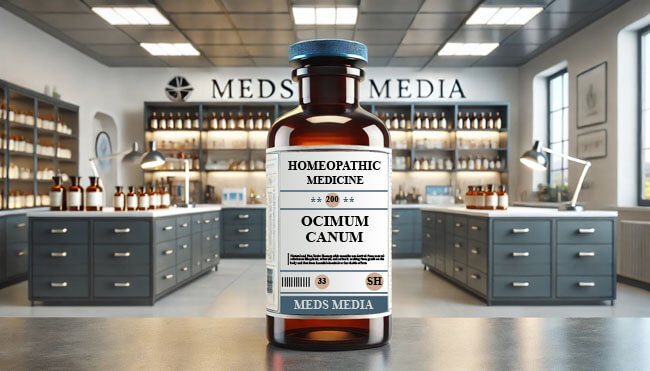
OCIMUM CANUM HOMEOPATHIC MATERIA MEDICA | Uses, Symptoms & Benefits Guide
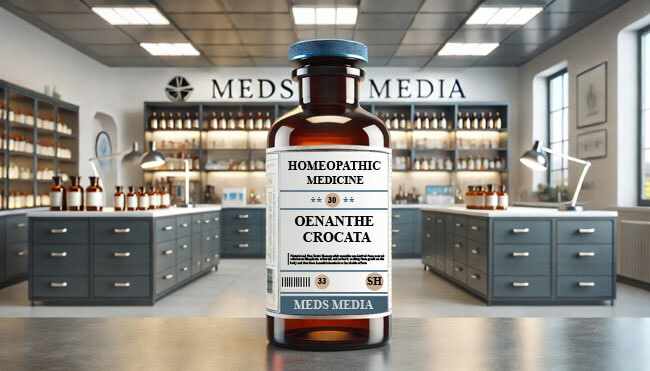
OENANTHE CROCATA HOMEOPATHIC MATERIA MEDICA | Uses, Symptoms & Benefits Guide

OLEUM ANIMALE AETHEREUM: HOMEOPATHIC MATERIA MEDICA – Symptoms Guide

OLEUM JECORIS ASELLI: HOMEOPATHIC MATERIA MEDICA – Symptoms Guide
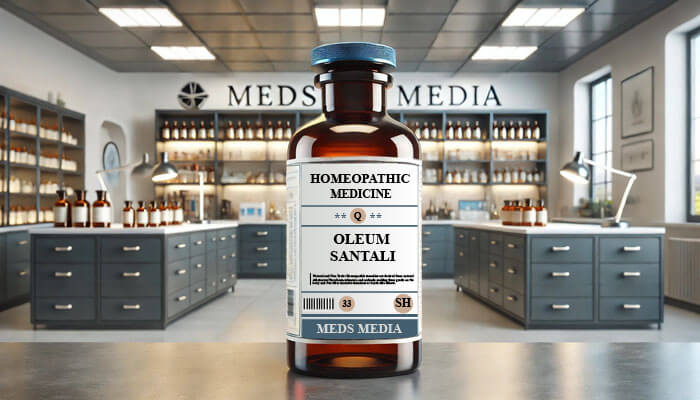
OLEUM SANTALI: HOMEOPATHIC MATERIA MEDICA – Symptoms Guide
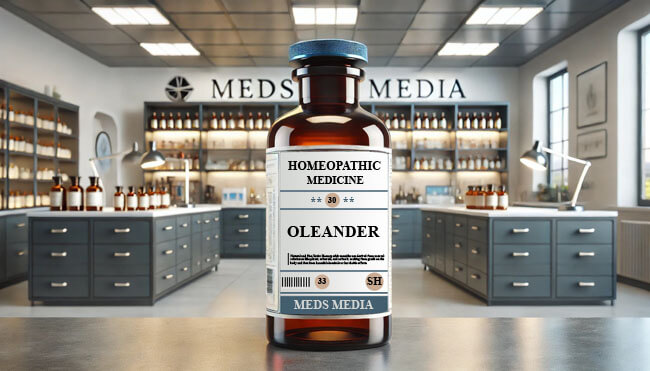
OLEANDER: HOMEOPATHIC MATERIA MEDICA – Symptoms Guide

ONISCUS ASELLU: HOMEOPATHIC MATERIA MEDICA – Symptoms Guide

ONOSMODIUM VIRGINIANUM: HOMEOPATHIC MATERIA MEDICA – Symptoms Guide

OPIUM: HOMEOPATHIC MATERIA MEDICA – Symptoms Guide
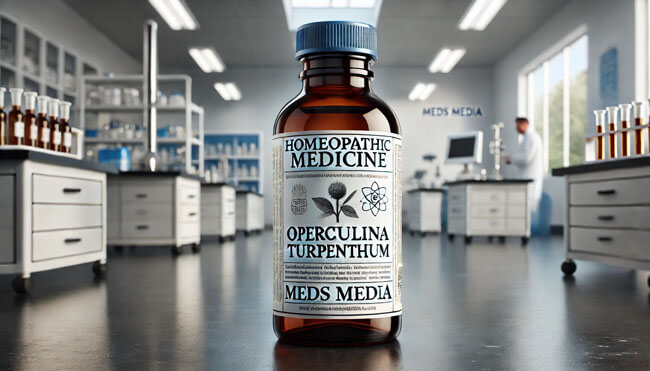
OPERCULINA TURPENTHUM: HOMEOPATHIC MATERIA MEDICA – Symptoms Guide

OPUNTIA FICUS: HOMEOPATHIC MATERIA MEDICA – Symptoms Guide
